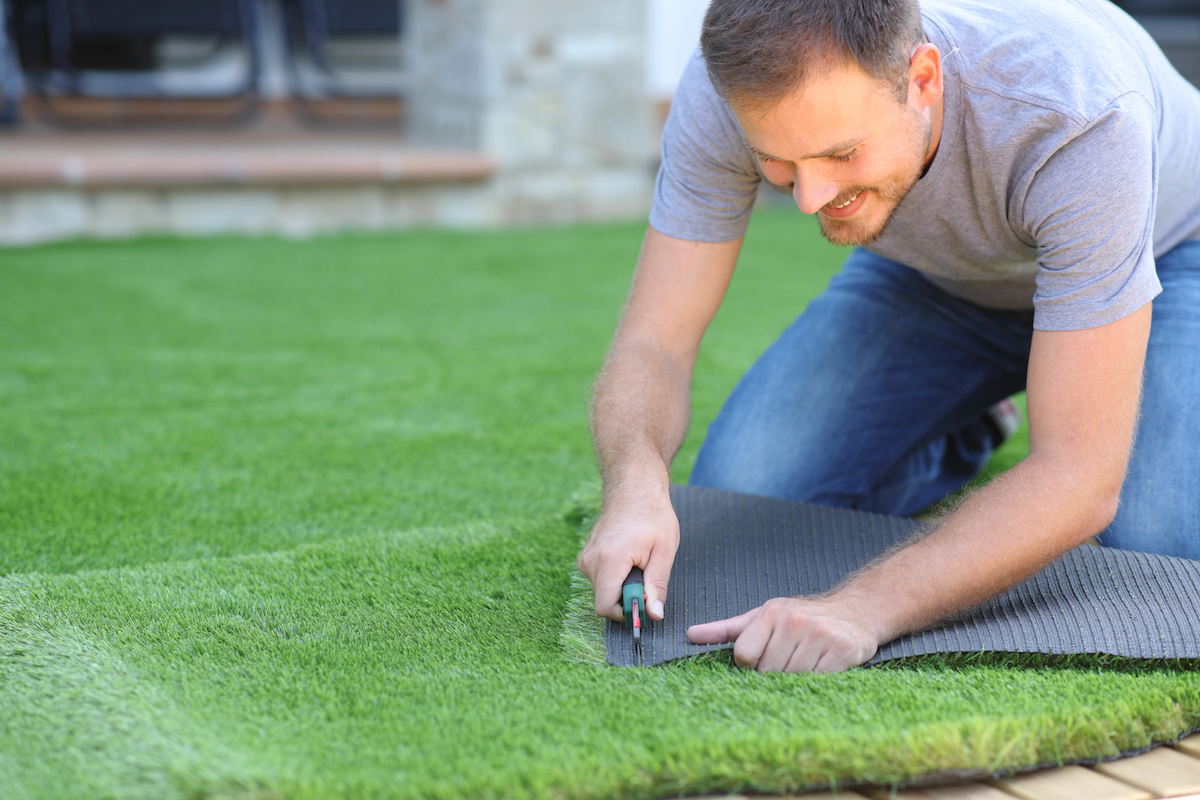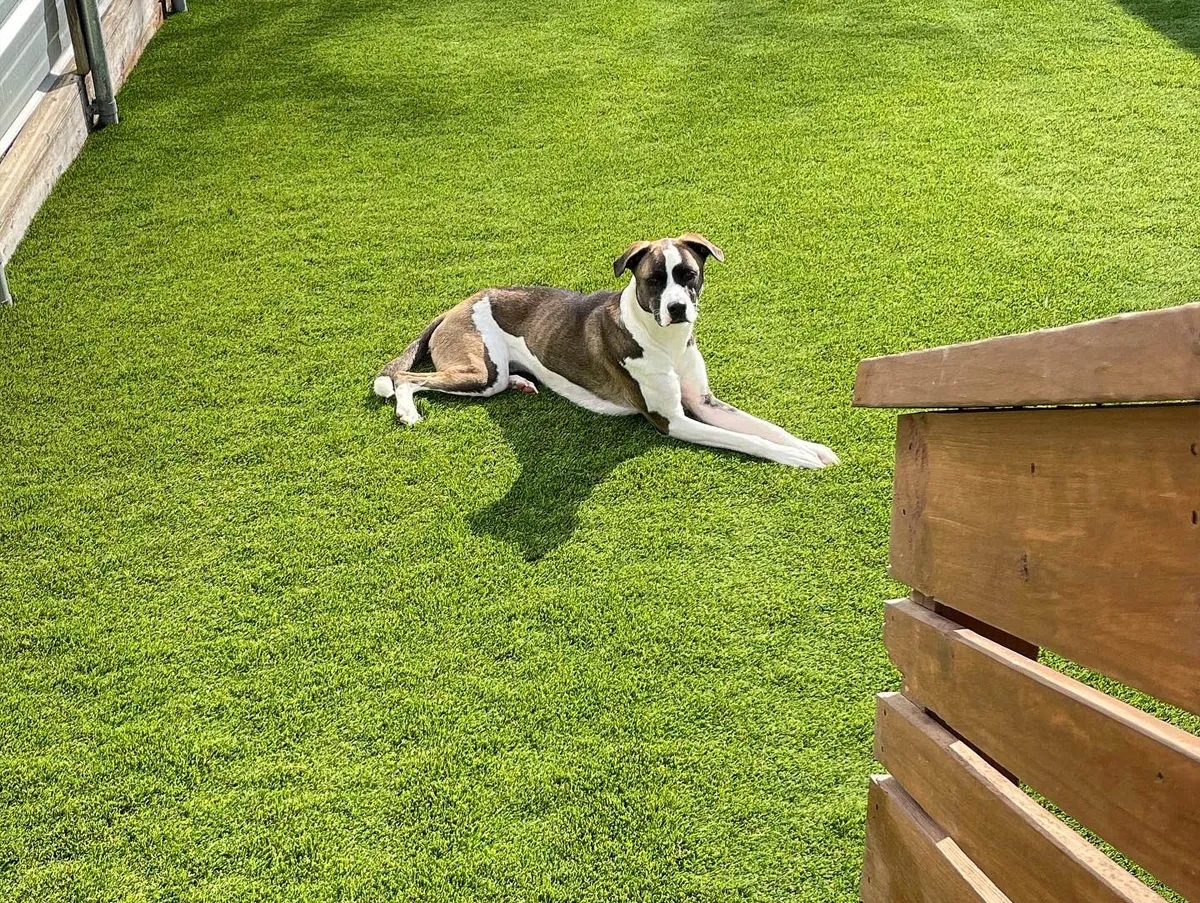Leading Phoenix Turf Companies Providing Superior Synthetic Grass Options
Wiki Article
Delve Into the Environmental Conveniences of Opting for Synthetic Grass Solutions
The fostering of man-made grass solutions provides a compelling possibility to attend to pressing environmental obstacles. By substantially minimizing water use and decreasing the application of unsafe chemicals, these alternatives not just promote lasting landscaping yet also shield neighborhood ecosystems.Water Preservation Benefits
Among the most considerable benefits of artificial grass is its capability to conserve water. Traditional grass yards need considerable watering, particularly in areas vulnerable to drought or water restrictions. In comparison, synthetic grass does not need watering, substantially reducing the total need for water resources. This function is particularly advantageous in dry regions where water scarcity is a pushing issue.By eliminating the demand for regular watering, synthetic grass adds to lasting landscape practices and assists mitigate the environmental impact of excessive water consumption. The preservation of water extends to the decrease of overflow, which can lead to soil disintegration and waterway pollution.
In addition, the setup of fabricated turf permits home owners and communities to assign water sources much more effectively, focusing on crucial usages such as drinking water and farming. The change in the direction of synthetic turf not only promotes responsible water use but additionally lines up with more comprehensive ecological goals intended at protecting natural deposits.
As areas progressively prioritize sustainability, the water conservation advantages of synthetic grass offer an engaging instance for its fostering in domestic and business landscaping projects.
Minimized Chemical Usage
The shift to synthetic grass significantly lowers the reliance on chemical therapies generally used in all-natural yard upkeep. Conventional lawn administration usually involves the application of plant foods, herbicides, and pesticides to advertise growth and control insects. These chemicals can posture dangers to human health and wellness, regional wild animals, and the setting, adding to soil and water contamination.In comparison, fabricated grass removes the demand for these unsafe substances. By minimizing the release of synthetic substances right into the ecological community, man-made lawn advertises much healthier soil and water systems.
Furthermore, the absence of chemical overflow connected with synthetic grass setups helps safeguard neighborhood rivers from pollution, sustaining water life and keeping biodiversity. Arizona turf. As areas significantly focus on lasting techniques, selecting synthetic grass presents a practical option that straightens with ecological preservation goals. Via this shift, homeowner can appreciate lavish environment-friendly areas without compromising ecological health and wellness, paving the means for an extra lasting future
Reduced Carbon Impact

Furthermore, the installment of synthetic grass can cause significant water preservation. All-natural yards need considerable quantities of water for irrigation, which not only includes to the carbon footprint associated with water extraction and therapy however additionally strains neighborhood water resources. In contrast, synthetic grass needs marginal maintenance, requiring no watering, therefore considerably reducing water use and its connected energy prices.
In addition, basics the longevity of artificial turf adds to its reduced carbon impact. With a life-span of up to 15 years or even more, the demand for constant substitutes is lessened, causing less waste and lower power consumption in production and throwing away standard lawn options. Generally, synthetic grass presents a lasting choice for environmentally aware landscape design.
Environment Preservation
Environment preservation is a vital consideration in the discussion over landscaping options, especially when comparing synthetic grass to natural lawn. All-natural grass lawns commonly require considerable upkeep, consisting of using herbicides, plant foods, and chemicals, which can negatively affect regional ecosystems. These chemicals can leach into the dirt and rivers, harming native vegetation and fauna and disrupting regional environments.
Artificial grass gets rid of the demand for damaging chemicals, thus shielding neighboring wildlife and keeping the stability of bordering ecological communities. The setup of fabricated lawn can lead to the conversion of former yard locations right into even more biodiverse landscapes, such as pollinator gardens or native plant areas, which can sustain neighborhood wildlife.
Inevitably, the change to synthetic grass not just preserves water and reduces upkeep initiatives however helpful hints likewise promotes an extra harmonious connection between human tasks and the native environment, advertising environment preservation while doing so.
Long-Term Sustainability
Long-term sustainability is an essential factor in examining the benefits of synthetic grass over typical grass yards. Among the most substantial advantages of man-made lawn is its longevity; it can last approximately 15-20 years with minimal upkeep, whereas all-natural yard needs constant reseeding and substitute. This durability reduces the demand for constant sources, such as water, fertilizers, and pesticides, which are vital for keeping a healthy grass yard.In addition, fabricated turf adds to a reduction in carbon exhausts related to yard treatment devices. Typical lawns frequently need gas-powered mowers, leaners, and blowers, every one of which add to air contamination. Phoenix turf companies. On the other hand, synthetic lawn eliminates the demand for such devices, promoting a cleaner setting
Furthermore, the production of artificial lawn significantly utilizes recycled products, improving its sustainability account. As manufacturers adopt environment-friendly techniques, the environmental impact of synthetic grass remains to decrease.

Conclusion
The adoption of fabricated grass solutions presents substantial ecological benefits, consisting of considerable water conservation, lowered dependence on hazardous chemicals, and a lower carbon impact. Man-made grass aids in protecting all-natural environments by minimizing land disturbance and promoting Website long-term sustainability through the usage of resilient materials. Jointly, these variables underscore the capacity of man-made lawn to add positively to ecological health and provide a feasible option to traditional landscaping practices in a progressively resource-conscious globe.In contrast, artificial grass does not require watering, considerably reducing the general need for water resources. By decreasing the release of artificial substances into the ecosystem, synthetic grass advertises healthier soil and water systems.
Moreover, the installment of fabricated lawn can result in considerable water conservation. In comparison, artificial lawn needs minimal upkeep, requiring no watering, thus substantially reducing water usage and its connected energy costs.

Report this wiki page